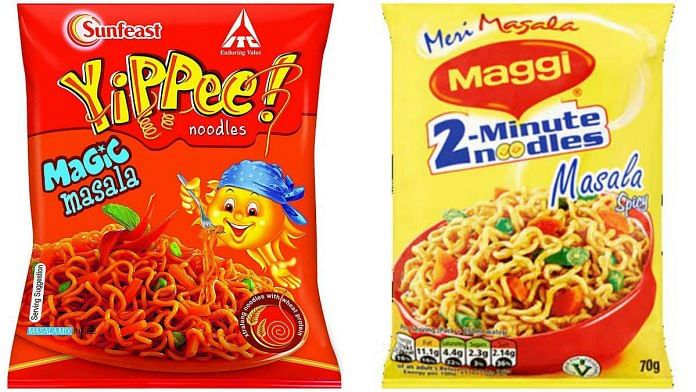New Delhi: Putting an end to an over six-year-long legal battle between ITC’s Sunfeast Yippee! and Nestle India’s Maggi noodles, the Madras High Court has ruled that neither of them can claim a monopoly over the word ‘magic’ to describe their product.
In the judgment delivered on 10 June, Justice C. Saravanan asserted that expressions like ‘Magic Masala’ and ‘Magical Masala’ are “laudatory” and so, nobody can claim an exclusive right over their use.
The court observed, “The word “Magic” is laudatory. It is incapable of being appropriated by the plaintiff (ITC). As such, no person can claim any monopoly over the said word “Magic” or “Magical” or their derivative as they are common to the trade. Therefore, it is incapable of being monopolised by any trader.”
It also pointed out that the expression ‘Magic Masala’ is commonly used in the food and cosmetic industry. It, in fact, observed that the expression was first adopted by Lays for their potato chips.
It asserted, “The word “Magic” is also a common word in the food and cosmetic industry. It is not a coined or invented word. It is inherently not a distinctive word … Since it is a laudatory word, it can never be monopolised.”
Also read: Nestlé in trouble for ‘influencing doctors to prescribe baby food’ in India
‘Masala’ isn’t a special word either
The court also said that since ‘masala’ is a common word, no monopoly can be claimed over this term as well.
“It is a common name for describing the mixture of spice in the majority of the Indian languages. Therefore, it can never be appropriated,” it observed.
“In my view, neither the plaintiff nor the defendant can claim the monopoly over the respective laudatory words “Magic” or “Magical” along with the common word “Masala” to the exclusion of one another… As such the plaintiff cannot claim monopoly over the expression “Magic Masala”.
It was ITC that began the legal battle back in 2013, after Nestle began using ‘Maggi Xtra-delicious Magical Masala’ to market its noodles.
ITC said that it had been selling Sunfeast Yippee! Noodles in the ‘Magic Masala’ variety since 2010. It therefore filed a suit in the high court demanding an injunction against Nestle from using ‘Magic Masala’ or any other similar term for its product. It had also asked for damages of over 10 lakhs.
Also read: Nestle wants your DNA to personalise your nutrition
‘Nothing magical about the flavour’: ITC’s argument
In its suit, ITC submitted that the public identified and related the term ‘Magic Masala’ with Sunfeast Yippee! and submitted that Nestle India was “passing off” the expression. The law of passing off protects the goodwill of a business by preventing competitors from passing off their goods as someone’s else’s.
ITC therefore alleged that Nestle India copied the phrase by slightly tweaking it as saying ‘magical’ instead of ‘magic’. By doing this, it said, the company wanted to “cheat unwary and gullible customers” into buying their product instead of ITC’s.
According to the judgment, ITC asserted that “there was nothing ‘Magical’ about the flavour” and so Nestle cannot claim right over using the expression “Magical masala”.
Court says cannot trademark ‘Magic Masala’
The court, however, pointed out that ‘Magic Masala’ is not a registered trademark. It, in fact, noted that if ITC had filed a trademark application to register the expression “Magic Masala” as a word mark, it would have been rejected.
The court also acknowledged that the phrase ‘Magical Masala’, used for Maggi noodles at a later point of time, was “certainly inspired from the adoption of the expression ‘Magic Masala'” for Yippee! noodles”.
But it opined that “such adoption cannot be said to be malafide. It was a legitimate adoption by the defendant (Nestle Maggi) as no person can appropriate common and laudatory words.”
The court also noted that ITC did not intend on using ‘Magic Masala’ as a brand or sub-brand. It said that the brand was ‘Sunfeast Yippee!’ and that ‘Magic Masala’ was only used to describe the flavour.
As for allegations of passing off products as another’s, the court pointed out that the overall colour scheme, layout, style and get up of the two products were different.
“There is no scope for confusion,” the court said as it dismissed ITC’s suit.
Also read: Govt has banned vapes, but owns 28% of ITC – India’s biggest cigarette maker



